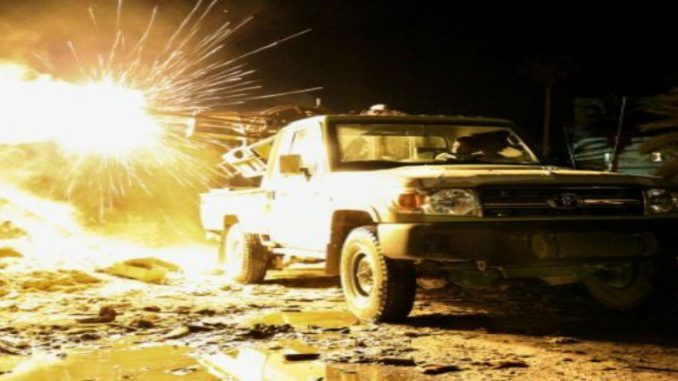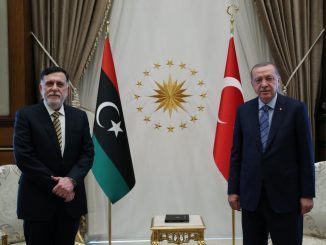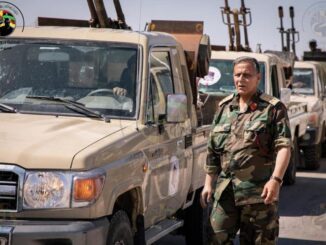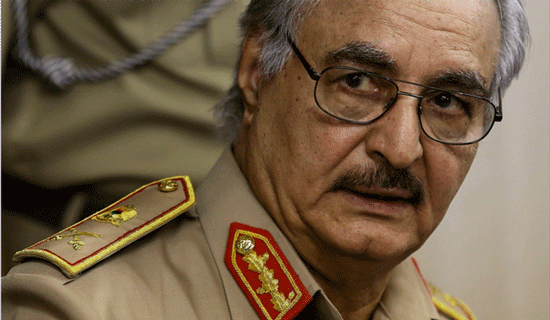
Forces loyal to General Khalifa Haftar have bombed rival forces in retaliation for a deadly attack on an airbase in the south of the country.
The LANA news agency said, “Warplanes launched air strikes overnight Saturday as part of the Martyrs of Brak al-Shati operation,” in reference to the airbase where at least 141 people, mostly forces loyal to Haftar, were killed on Thursday.
LANA, which is loyal to authorities based in eastern Libya, said MIG-23 jets carried out seven air strikes, targeting “terrorists in Hun and Jufra”, two areas in southern Libya.
The agency, quoting Colonel Mohammad al-Manfour of the pro-Haftar Benina airbase in Benghazi, said “several weapons depots, vehicles and centers of operations” were destroyed.
Last Thursday, members of the Third Force militia loyal to the UN-backed Government of National Accord (GNA) in Tripoli attacked the base used by Haftar’s self-proclaimed Libyan National Army (LNA).
LNA spokesman Ahmad al-Mesmari said the soldiers were returning from a military parade unarmed, and that most of them were executed.
Following the attack, the GNA denied ordering the attack, which it condemned, and said it had set up a commission of inquiry to investigate the allegations.
Mahdi al-Barghathi, the GNA’s defense minister, was suspended, pending an outcome of the probe. Jamal al-Treiki, the head of GNA’s Third Force militia, which was accused of carrying out the attack, was also suspended.
In the same context, the United Nations Secretary-General António Guterres said he is deeply concerned about the military escalation at the Brak al-Shati air base in southern Libya and calls on all parties to exercise restraint and restore calm, as stated by the UN chief”s spokesman.
“The Secretary-General is particularly disturbed by the high number of fatalities as well as reports of summary executions of civilians, which, if confirmed, may constitute war crimes,” said a statement.
Moreover, Guterres urges all key Libyan stakeholders to re-commit to the political dialogue and engage constructively towards that goal.
There is no doubt that the recent military escalation would abort the ongoing efforts to bring a political solution to the Libyan crisis.
This month, Haftar and al-Serraj met in Abu Dhabi for only the second time since Serraj was named prime minister in late 2015 as diplomatic efforts intensify to ends years of chaos and conflict in the North African nation.
The meeting aimed to settle a political solution between Haftar and al-Serraj amid resolving the turmoil in Libya.
Haftar, who is the leader of a militia known as the Libyan National Army, does not recognize Tripoli and instead backs the parliament based in Tobruk, in the western Libya.
Since the 2011 revolt that toppled and killed longtime leader Muammar Gaddafi, Libya has fallen into chaos with rival militias and authorities were competing to control the oil-rich country.



